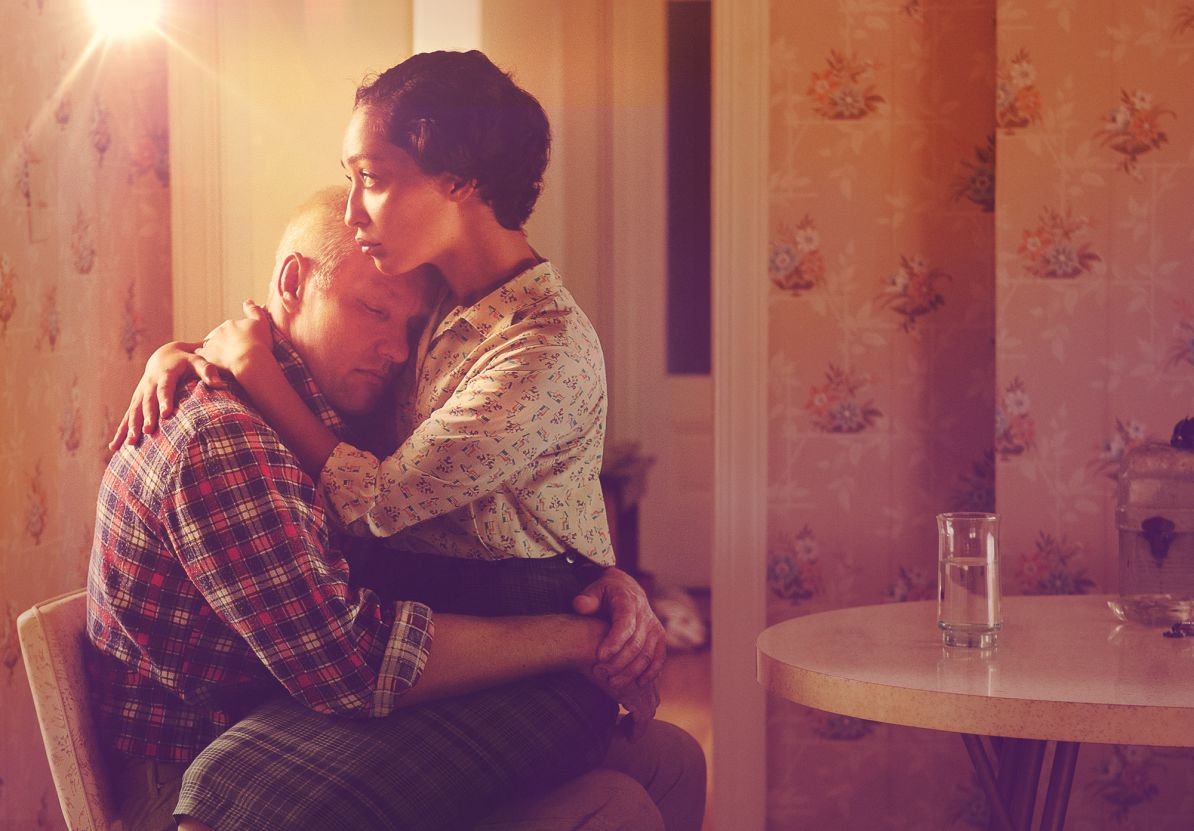Loving begins quietly. Mildred and Richard sit on a front porch of a Virginian home. She tells him she’s pregnant, he says that’s wonderful. Against the backdrop of a deeply divided United States, Loving continues this way: quietly and sweetly. Following the true story of the Loving’s and their court case that led to the Supreme Court declaring anti-miscegenation laws to be unconstitutional, writer/director Jeff Nichols makes sure to maintain the focus on the husband and wife.
This is where the film succeeds: the love between Mildred and Richard is palpable on screen due to the brilliance of Ruth Negga and Joel Edgerton. Negga has a serene strength as Mildred, while Edgerton’s Richard is reserved and determined. Their deep respect for each other carries the film. When she speaks, he listens. It’s beautiful to watch. It is this that overshadows the injustice of the laws; by the end, you’re happy for them, not simply the country.
But, perhaps, Loving is too sweet for its own good. The stakes are high—we all know this—yet it’s not felt. It’s easy to fall in love with Mildred and Richard, and their personal happiness is the priority, but for such a monumental case, the action takes place outside of the court. And while Loving finds its ground in this, it lacks a bite. Either direction would make a very different movie. Keeping it quiet, however, can be justified in a single line: Richard to attorney Bernie Cohen (Nick Kroll, who is simply fine), “Tell them I love my wife.” Loving is not complicated. It’s about a man and a woman who love each other. It’s quiet, romantic, and for the lack of a better word, lovely.






Leave a Reply